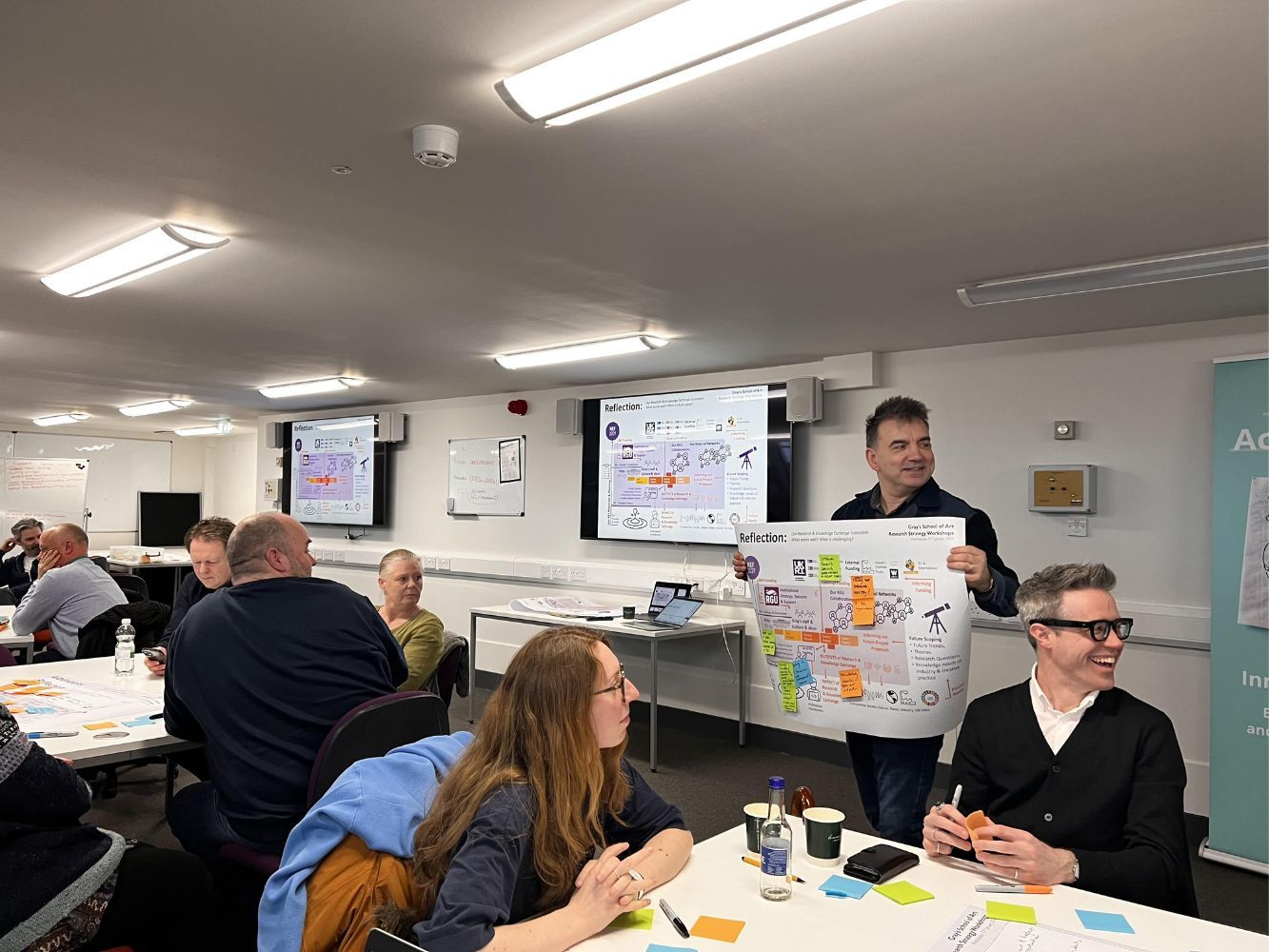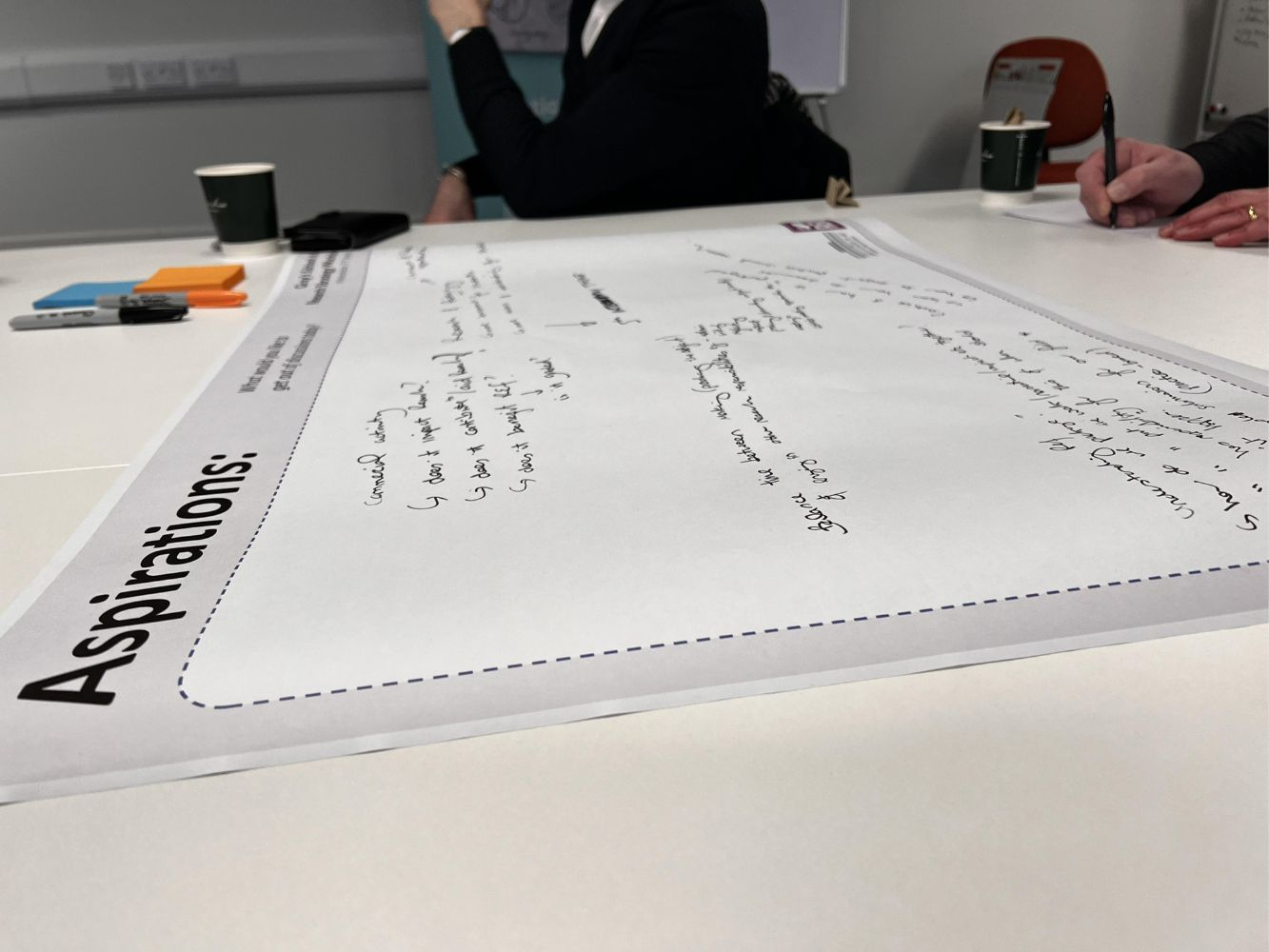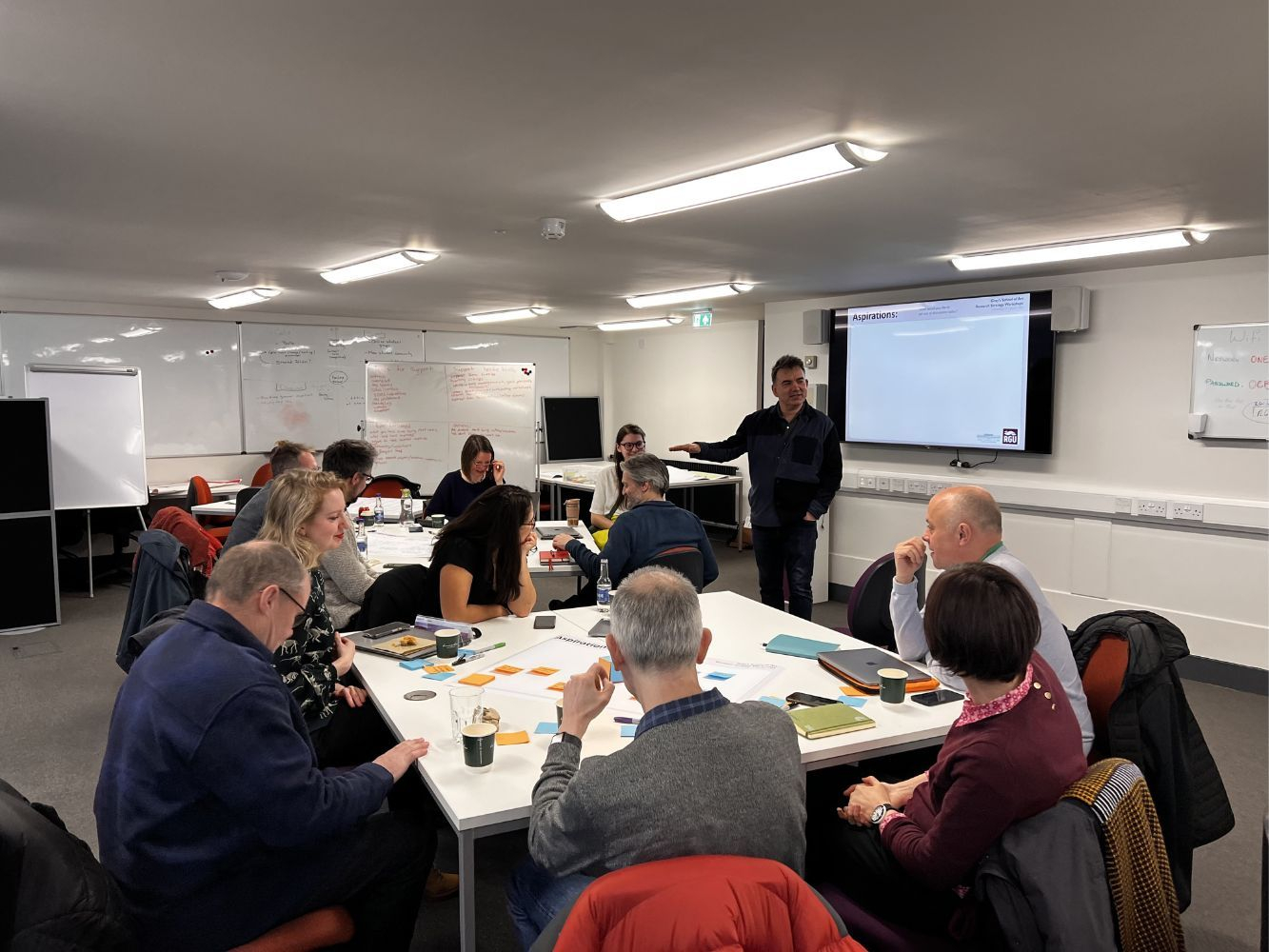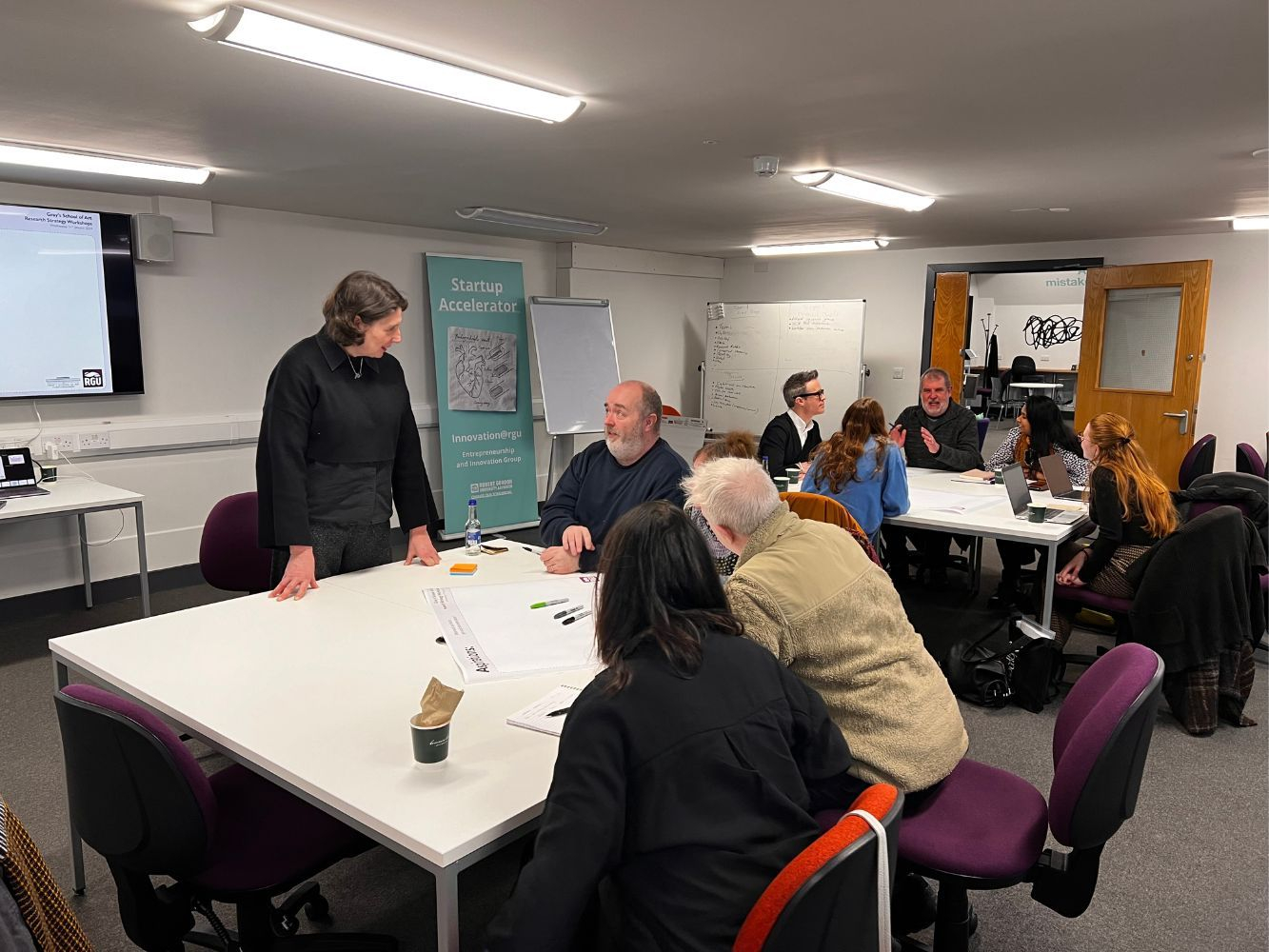Celebrating research at Gray’s School of Art
As part of a drive to enhance research at Gray’s School of Art, Associate Dean for Research at Gray’s School of Art, Josie Steed, is launching a series of research workshops to foster Gray’s research community. RGView caught up with Josie, to find out more about the workshops and the school’s renewed vision for research...
Research plays a crucial role in enriching peoples’ lives and has a positive impact on a wide range of social issues, including health and wellbeing, inclusion, empowerment, community building, and activism. Research can bring diverse communities together, helping to shape a more inclusive, empathetic, and socially conscious society. It also supports the creative economy, by facilitating innovation, bringing new thinking to businesses that can increase employment and help new types of enterprises to flourish.
One of my main priorities as Associate Dean for Research is to encourage more staff to get involved in research and knowledge exchange. We currently have a small group of active researchers who have allocated time towards research. Some are highly experienced, whilst others are at the early stages of their research development. My priority is to support our research staff so they can achieve their ambitions, and to encourage more staff within the school if they wish to engage in research through making it accessible and transparent to all.
Our research supports RGU's Research Strategy and currently focuses on curatorial practice; practice-led research particularly within contemporary and fine art practice. We cover a broad range of research themes that range from socially engaged art practice, feminism, forestry and ecology, fashion and sustainability and digital futures – such as immersive technologies including AI/AR & VR within the creative industries. Many of our researchers work as part of interdisciplinary research teams across RGU and with colleagues in other institutions.
I want to foster an inclusive community of research and knowledge exchange active researchers who are impactful across the creative disciplines locally, nationally and internationally. A key priority is to make our research more visible and integrated within our teaching and our public engagement all of which build on the school’s key strengths.
With this aim in mind, I organised a workshop to build our school’s research culture and environment. Gray’s has a vibrant community of staff and research students engaged in a wide variety of knowledge exchange, community and public engagement and research activities across the NE region, Scotland widely, the UK and internationally. Harnessing this potential, and building a collective ambition for research, with staff engagement and buy-in, is vital to our success. This means working together and making connections across our teaching, undergraduate and postgraduate study, and building our PhD research community.
Our first research workshop, led by external facilitator Tom Inns from Cofink Ltd, asked participants to envisage what research and knowledge exchange at Gray’s could aspire to be by 2030. Working in groups, we shared ideas on how to foster a strong research community, which we captured on pre-prepared mapped sheets.
We wanted to explore our strengths, not only in our current existing research and knowledge exchange activities, but to create a future road map and vision, that would build upon our unique strengths and aspirations between now and 2030.
The first session focused on reflection, the past, the present and asked everyone to map a collective understanding of Gray’s research journey to date with reflection on challenges and achievements over the last 10 years.
The session then explored Gray’s shared ambition. What should Gray’s aspire to be doing by 2028? What shared values/behaviours will support deliver of the ambition?
Workshop participants discussed the actions Gray’s needs to take to deliver on this shared ambition? How can actions be clustered into a series of themes and in what areas Gray’s needs to be proactive in investing time and the resources needed.
Our next stage of the workshop considered what is driving change for Gray’s and what future drivers of change specifically threats and opportunities are emerging. We explored three possible futures for Gray’s.
- A Predictable Future - if Gray’s continues on its current trajectory where will its research be by 2028, its operations, scale, impact and financial position?
- A Challenging Future - if internal or external drivers have a negative impact, where will Gray’s research be by 2028? What are key drivers that will precipitate a challenging future?
- An Optimistic Future - if things go well where will Gray’s research be by 2028? What key drivers will need to align to deliver the optimistic scenario?
We also assessed who Gray’s research stakeholders are and asked what each stakeholder group wants from Gray’s research, and what do Gray’s researchers want from its stakeholders?
Based on the workshop’s positive findings I’m really excited about the future for research at Gray’s going forward. We plan to run a follow up research workshop in June, that will build on our first research workshop and be centred around a Design Sprint that helps us define our goals further. We also want to work with our external stakeholders to develop further academic and external collaborative opportunities. We are also currently setting up a pedagogical research group within the school. Other events in the pipeline include ‘demystifying research’; building our knowledge exchange understanding and training on practice-led research.




